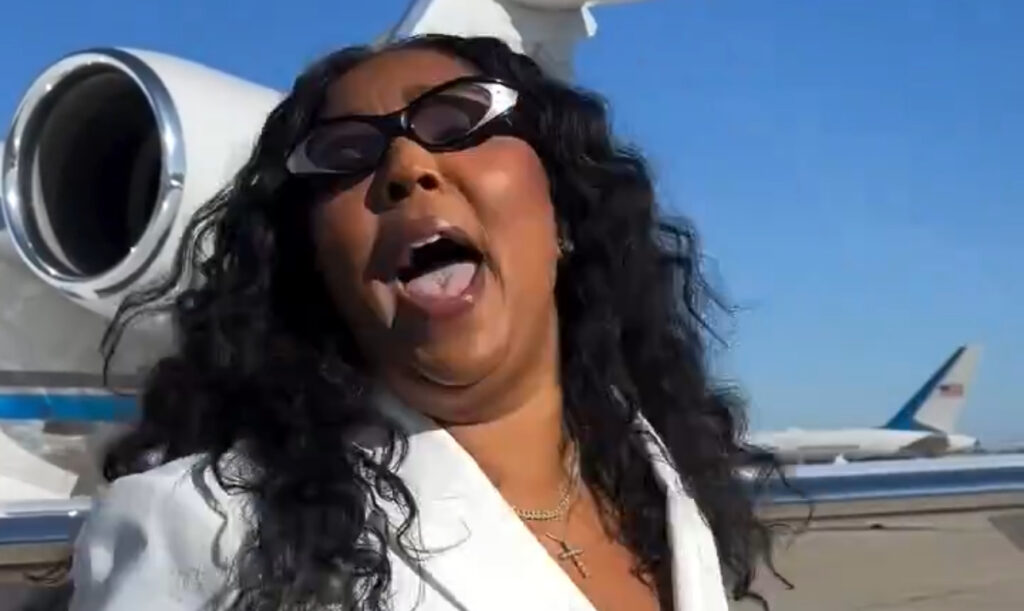Pop star Lizzo recently made headlines for her appearance at a rally for Vice President Kamala Harris in Detroit. Known for her empowering messages and bold personality, Lizzo took to her private jet to arrive at the event, proclaiming, “This is how a bad b*tch saves Democracy.” With a flair for drama and self-affirmation, her comments seemed to playfully mock the seriousness of political discourse, leading some to question the credibility of her endorsements. As she took off, calling out the intelligence of her critics, Lizzo personified a segment of celebrity culture that appears to prioritize charisma over substance.
This rally reportedly drew a small crowd, and Harris’s appearance was notably brief, lasting a mere six minutes and 36 seconds. Observers noted that she appeared visibly tired during her time on stage. Critics seized upon this, emphasizing a contrast between Harris’s limited engagement and the more rigorous campaigning efforts of former President Donald Trump, who has been actively participating in numerous media appearances and extended speeches. The juxtaposition of Harris’s tired demeanor and Trump’s campaign vigor reinforced ongoing discussions about each politician’s effectiveness and stamina.
The irony of Lizzo’s remarks became apparent during her speech, where she stated that a victory for Harris would mean that “the whole country will be like Detroit.” This comment sparked further debate about Detroit’s challenges and the implications of such a comparison on a national stage. Lizzo’s sweeping statements raise questions regarding the potential ramifications of Harris’s leadership style and its impact on diverse American cities facing their own unique struggles.
Critics highlighted that the support from musicians like Lizzo may not resonate with voters looking for serious political discourse. The perception that celebrity endorsements can overshadow meaningful content in political campaigns is a prevalent concern among traditional political analysts. By embracing a culture that appears more frivolous than foundational, there’s a risk of alienating voters who desire depth in political discussions and actionable solutions.
Lizzo’s rally appearance also exposes a broader trend in contemporary politics, where celebrity influence engulfs serious issues. While her enthusiasm may energize a certain demographic, it also reflects an ongoing conflation between entertainment and governance. This blending poses risks to the substance of political discourse, potentially leading people to evaluate policies based on personality and spectacle rather than legislative impact and experience.
In conclusion, Lizzo’s role at the Kamala Harris rally exemplifies the intertwining of entertainment and politics, wherein the personal charisma of celebrities sometimes overshadows the gravitas needed for meaningful dialogue. As political climates continue to evolve, the implications of such occurrences will be critical in shaping public perception of candidates and the overall health of democratic discourse. As audiences navigate this blend of entertainment and political messaging, they are challenged to discern substantive political engagement from mere spectacle.

